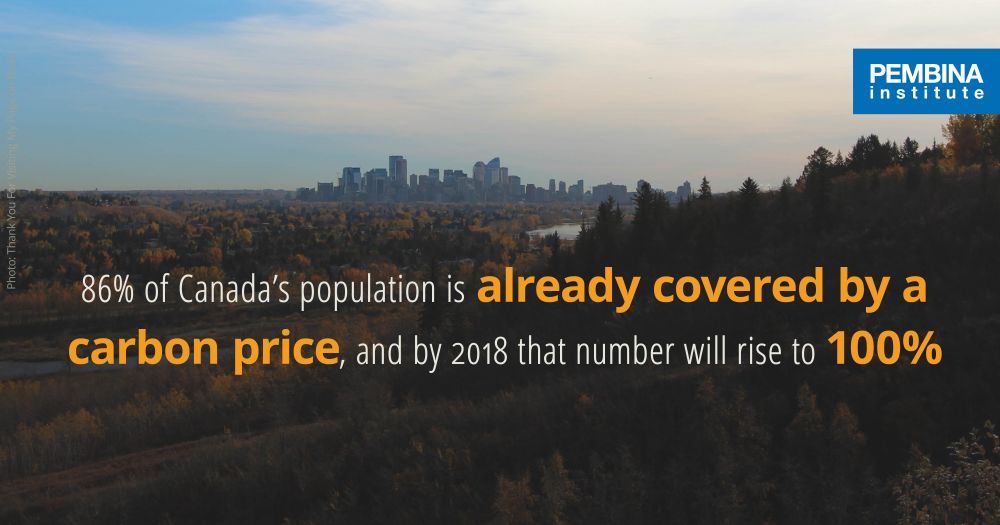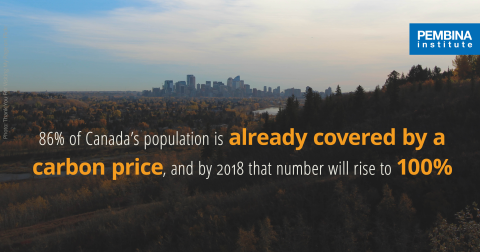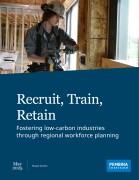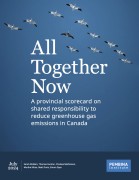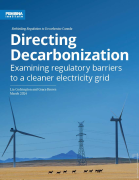The federal government will soon release a consultation paper containing technical details on the proposed federal carbon pricing backstop mechanism, and later this year will enact legislation to create a national carbon pricing benchmark. Now is the time to ensure this proposed approach results in important emissions reductions and supports Canada’s transition to a clean growth economy.
Carbon pollution pricing is a critical tool to promote clean growth in Canada. The Pan-Canadian Framework on Clean Growth and Climate Change, finalized in December 2016, contained a commitment to implement a national benchmark for carbon pricing to be met by all provinces and territories by 2018. This commitment builds on provincial-led progress to implement regionally tailored carbon pricing systems.
This backgrounder outlines the current state of carbon pricing policies in Canada, both federally and provincially, and makes recommendations on how to ensure the new national benchmark approach is successful.
In brief, we recommend the following:
- The federal benchmark, at a minimum, provide guidance on treatment of EITE sectors and the protection of vulnerable Canadians.
- Any EITE treatment be designed to minimize carbon leakage and competitiveness impacts.
- The federal benchmark require as broad coverage as is accurately measurable.
- The federal government make clear the terms of the 2020 carbon pricing review.
- The national benchmark stipulate that cap-and-trade systems must have a cap decline rate in line with a 30% reduction below 2005 levels by 2030. Further, that it stipulate that cap decline rates be at least as stringent as projected in the reference case for each jurisdiction.
- The federal government ensure that carbon pricing and other climate policies are reviewed collectively and often, as per Canada’s obligations under the Paris Agreement, to ensure that Canada is on track to achieve its carbon pollution reduction goals.
- The national carbon pricing benchmark be indexed to inflation. Further, that the federal government begin laying groundwork for carbon price increases out to 2030.
